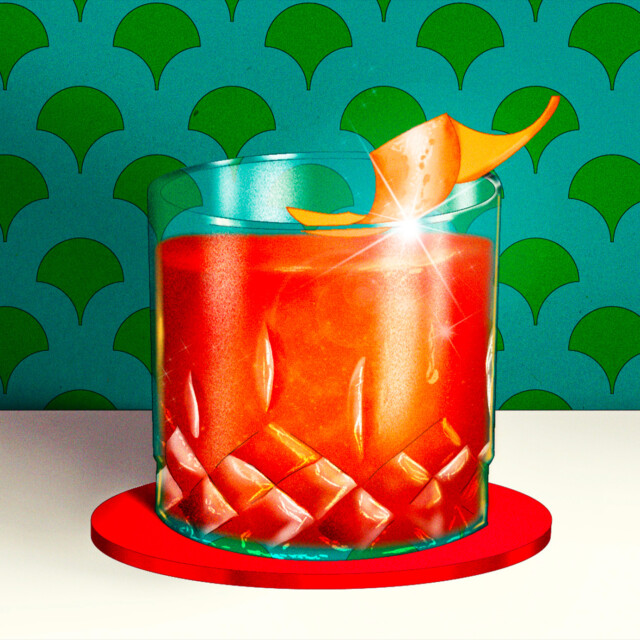The early wave of modern Tokyo cocktail bars defined the distinctive style of drink preparation and service known as Japanese bartending — and the type of establishments in which it could be found — while pushing forward the idea of a thriving cocktail culture from within an Asian metropolis.
Bar Opa was opened by Kenji Otsuki in 1996, and Shinobu Ishigaki’s Bar Ishinohana debuted in 2003. The early establishments that most captured international attention, though, were Star Bar, which opened in 2000, and Bar High Five from owner Hidetsugu Ueno, who trained under the former’s Hisashi Kishi before opening his own space in 2008.
These bars and many that followed conglomerated in the city’s buzzy Ginza neighborhood, often in basement hideaways, and established the idea of Ginza cocktail bars as a defined experience: a formal operation with stoic, tuxedo-clad bartenders using precise technique in the careful creation of classic cocktails. The atmosphere was likely dim and patrons spoke with hushed tones. Consistent execution, service, and atmosphere — from drink to drink but also from year to year — was prized, along with long and intensive apprenticeships that fostered a next generation indoctrinated into the same ideals.
This was the foundation that thriving bar scenes in cities such as Shanghai, Singapore, and Seoul was built upon. Yet, over the past decade — call it the 50 Best Bars era, if you’d like — these locales have garnered more acclaim. Citywide bar culture evolved faster and hospitality often evolved to match a more Western format, while young entrepreneurs grabbed the reins in a way that is perhaps prohibitive in Japan.
Can Tokyo reemerge as one of Asia’s preeminent cocktail hubs? A new vanguard is showing that indeed it can, even if it means moving beyond that formal world of Japanese bartending and into a new direction.
The Pros and Cons of Japanese Bartending in 2024
Kentaro Wada has held court from the 45th-story lobby of The Ritz-Carlton Tokyo in Roppongi for a decade. He’s the head bartender of The Bar, an elegant, showy space with stellar city views, a bottle keep locker, and boundary-pushing cocktails drawing from Japanese flavors and ingredients. For him, Japanese bartending is both a tradition and source of pride, but he’s also seen how the concept has in some ways fallen behind the times.
“The world of Japanese bartending has been out of trend for more than five years,” Wada says. He believes it’s become stagnant from within and misunderstood by guests, making it difficult to honor that tradition while also innovating.
“First, we have to be able to explain and understand what Japanese bartending is,” Wada says. Then, he believes, Tokyo’s practitioners need to better determine how and where it fits in among the rest of the world. “We have to change our minds a little bit.”
What is Japanese bartending, though? According to Wada, it’s a combination of elevating all aspects of a drink’s preparation, flavor, and presentation to the highest level, while prioritizing simplicity and subtlety. “There’s also a respect for ingredients and seasonality, and it all relates to the idea of tea ceremonies, from 1,500 years ago,” he says. Consider that the Western cocktail world is based upon foundational books and bars from 100 to 150 years ago, whereas the Japanese cocktail world draws upon principles that stretch back 10 times further.
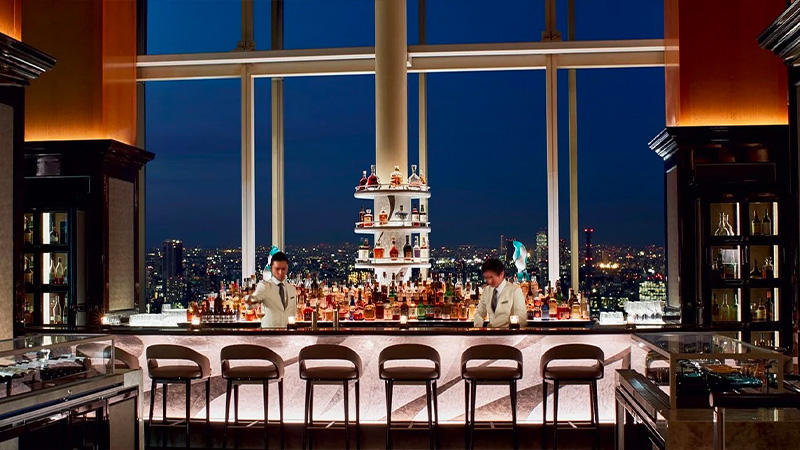
It’s easy to appreciate that sense of ceremony at a renowned establishment such as Gen Yamamoto, where seasonal omakase cocktail menus are served from a minimalist, distraction-free space. The patron’s whole focus is on the drinks — how they’re prepared, how they taste, and how they progress from one to the next.
“The bartending scene around the world has come back to hospitality. I’ve always thought hospitality is more important than drinks.”
It’s not a concept that just anybody could pull off, nor is it one that would work in any city around the world. “This is a ceremonial culture, and we don’t always appreciate it,” says Keith Motsi, the head bartender of VIRTÙ at the Four Seasons Hotel Tokyo at Otemachi.
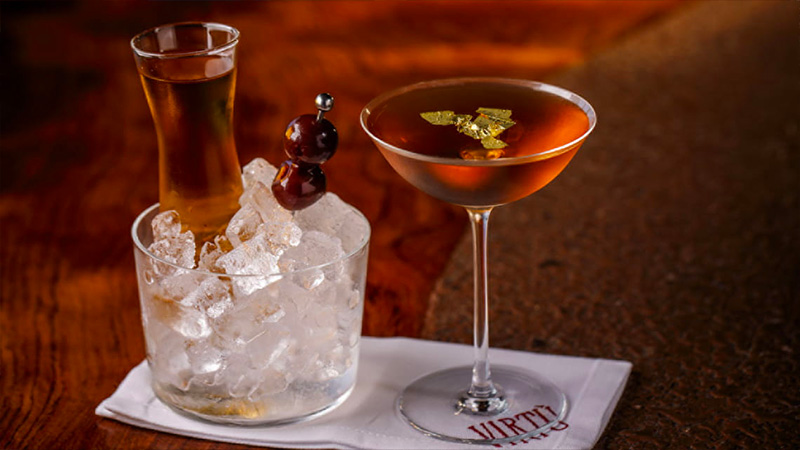
That culture has set a baseline of expectation that’s far above what most other major cities can match. “What we would consider a dive bar here, the equivalent of one, they have some of the best glassware you’ve ever seen, the bartender is put together,” Motsi says. In the same way that many quip there’s no bad food to be found in Tokyo, because of the lofty, ingrained standards that developed alongside proud traditions, bars and izakayas in the city hum along at a near-universal high plain as well. “The quality and standard is insane,” Motsi says.
Lost in that mix are the elements that many customers now most appreciate about bars; those precise classic cocktails can be found almost anywhere from Boise to Bangkok in 2024. The best internationally recognized bars today have to do so much more, and approach their businesses in a different way as well.
“The bartending scene around the world has come back to hospitality,” says Holly Graham, founder of Tokyo Confidential, which opened at the end of 2023. “I’ve always thought hospitality is more important than drinks.”
In comparison to Graham’s longtime home of Hong Kong, she says, the cocktail bars in Tokyo lack community. Motsi agrees, while pointing out that it’s due in part to the logistics of the city and the work culture of Japan. Tokyo is sprawling in a way that makes it far more difficult to make the rounds than it is in a place such as Hong Kong or Singapore, while employees are often pushed to the limits with lengthy six-day work weeks. That’s created an environment where bars don’t cross-promote one another in the same way, and don’t foster the sense of citywide recognition that other cocktail cities and communities have.
“There is now a different community, a new generation, a new wave coming up. It may take five or 10 years but I think those two sides will cross together again.”
“I think Japanese bars are behind in social media and communication right now,” Motsi says. Many of Tokyo’s golden-era Ginza bars are operated by owners now in their 50s and 60s who aren’t interested in such modern trappings, and also, frankly, don’t need them. “A lot of those bars are tiny, they’re always going to be full with their regulars.” Motsi says. “so they don’t need to shout, and something like 50 Best is probably a pain in the ass.”
Motsi, who was previously at Charles H. in Seoul for four years before moving to Tokyo in 2022, sees that as a major point of difference. The young upstarts and bar owners that have populated Seoul, Bangkok, Hanoi, and other Asian cities are far more rare in Japan. “It’s generational, that’s the thing in Japan,” he says.
A New Path Forward
A fresh face to Tokyo’s bar industry is now emerging, including the likes of Motsi and Graham, and Wada is excited about the opportunity it presents. “There is now a different community, a new generation, a new wave coming up,” he says. “It may take five or 10 years but I think those two sides will cross together again.”
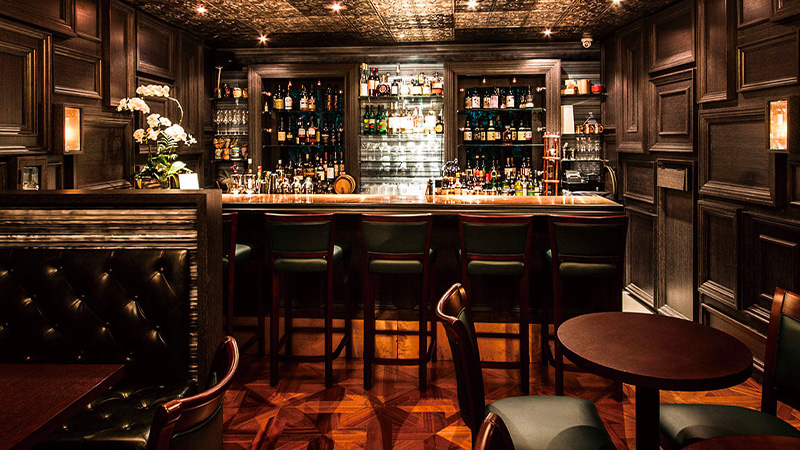
The bar most credited with beginning to shift Tokyo’s cocktail culture past the strict confines of Ginza bars and Japanese bartending is The SG Club, which opened in 2019. Shingo Gokan’s return to Tokyo came after a 10-year stint at Angel’s Share in New York, and after earlier projects established his entrepreneurial foothold in Shanghai. “I think Shingo is the one who brought that Western style mixed with Japanese style, and the way he does it, it’s a perfect approach,” Motsi says. The venue is a multi-level, multi-concept space blending the ideals of Japanese bartending with a more Western style of hospitality and service.
At The Bar, Wada is doing his part by maintaining the precision and standards of Japanese bartending, while creating innovative new concepts. His Ultimate Japanese menu showcases signature drinks using only three ingredients, each representing a different region spanning the length of Japan from Hokkaido to Okinawa. The signature Ritz-Carlton Tokyo Martini, for instance, uses ingredients such as mirin alongside sakura, yuzu, and shiso flavors, and is poured from an ice-cold bamboo vessel, representing an East-meets-West philosophy. “What if people from Tokyo made a Martini 500 years ago?” Wada wonders. “When I say tradition and innovation together, I mean something like this.”
“Japan has always been a little bit cold in that way, but everybody wants a big hug, a warm welcome, that’s one of the things we wanted to change.”
It’s the same type of approach that so many restaurants have executed to perfection in Japan. Wada needs to look no further than across the lobby to find Héritage by Kei Kobayashi, where the 3-Michelin Star chef offers cuisine steeped in formal French technique while working wholly with Japanese ingredients. Japanese bartenders are realizing such cultural blending works behind the bar, too.
At VIRTÙ, innovation arrives not only via the menu, but more importantly, with the bar’s off-the-charts hospitality. The de facto expectation is for a guest to be greeted by multiple staff members, after which perhaps a glass of welcome Champagne is poured as soon as they sit down, a small taste of a house ingredient might be proffered when considering which drink to order, or a parting gift of a ceremonious mini libation is provided on their way out.
“Japan has always been a little bit cold in that way, but everybody wants a big hug, a warm welcome, that’s one of the things we wanted to change,” Motsi says. The approach has fostered a sense of community that Tokyo’s traditional spaces sometimes lack, and case in point, he estimates that 85 percent of his guests are local, whether Japanese or expats, a staggering figure for a luxury hotel bar.
At Tokyo Confidential, the energy is about as far from muted or hushed as possible, which is a jolt compared to the city’s old-school bars. It’s laid back to the point of being irreverent, with a communal, party-centric atmosphere. “Just fucking chill and have a good time, it’s like me if I was a bar, we have Gucci wallpaper but still have ratchet vibes,” Graham says. “I want to be so incoherent we’re coherent.”
Elsewhere among Tokyo’s next generation, The Bellwood takes the form of a lively neighborhood bar in Shibuya that just happens to also have intricate, world-class cocktails on offer. Founder Atsushi Suzuki is a protege of Gokan, and the bar was formerly a part of the SG Group portfolio. Memento Mori serves tasting menus based around cacao, and its parent group, Spirits & Sharing, specializes in similarly specific thematic bars, such as Mixology Salon, where tea cocktails take center stage.
Then there’s a famed establishment such as Hiroyasu Kayama’s Bar Benfiddich. It’s a Willy Wonka world of no menus, with Kayama growing ingredients on his family farm and manipulating them in mind-bending ways behind the bar. “Bar Benfiddich is not Japanese style, Kayama-san is Kayama-san; he’s the concept,” Wada jokes. Enough so that when he’s not available, perhaps roving around on the Guest Shift Circuit, the bar closes, even if it’s for half the month.
“Look at Gen Yamamoto; nowhere else on the planet,” Motsi adds. “Look at Benfiddich; nowhere else on the planet.”
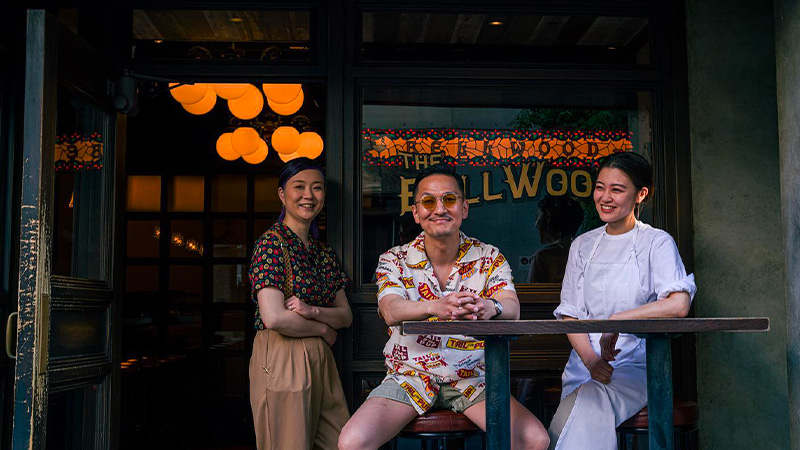
These inventive only-in-Tokyo bars are all the stronger when they’re part of a thriving and diverse cocktail culture that offers a different range of experiences. And make no mistake about it, Tokyo’s O.G. Ginza cocktail bars aren’t going anywhere. Nor should they. “To understand Japanese culture, what makes Japan great, they don’t need to bend for anybody,” Motsi says. “You have to adapt to them, they don’t bend, they dance to their own rhythm. It comes from love. It’s a passion project.”
By combining that intrinsic style of Japanese bartending and the bars that do it best, with a younger contingent eager to deliver a more international approach to hospitality and community, Japan’s capital is bound to not only catch up to its Asian metropolis peers, but perhaps surpass them.
This story is a part of VP Pro, our free platform and newsletter for drinks industry professionals, covering wine, beer, liquor, and beyond. Sign up for VP Pro now!
